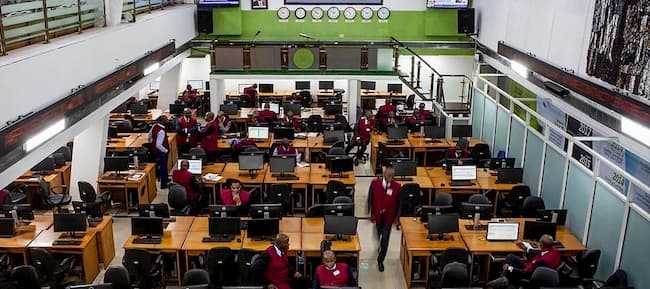The Director-General of the National Information Technology Development Agency (NITDA), Kashifu Inuwa has hinted that Nigeria is targeting to generate up to $10 billion in revenue from blockchain technology by 2030.
He made the disclosure at a stakeholders’ meeting held to review the National Blockchain Adoption Strategy Framework in Abuja. The NITDA boss reckons that blockchain technology is a major revenue earner for the growth of economies worldwide. He stated that Nigeria had to take advantage of the technology to improve the nation’s economy.
In Nigeria, looking at our youthful population, which is mainly digitally native and with our position in Africa, we are looking at how we can get at least around 6 to 10 billion dollars by the year 2030.Mr Kashifu Inuwa, NITDA Director-General
A recent PwC report projects that blockchain would add $1.76 trillion to the global Gross Domestic Product (GDP) over the next 10 years.

Inuwa wants Nigeria to toe the same path as China in the adoption of blockchain, with the world’s second largest economy projected to generate nearly half a trillion dollars ($460 billion) in revenue by 2030.
“We want Nigeria to be strategically placed to capture value from this economic potential of blockchain,” he said.
Nigeria currently is without a legal framework or regulation guiding blockchain technology adoption. In the absence of government regulation, blockchain-based startups continue to proliferate in the country, especially in the fintech sector.
Blockchain Companies are Booming
Nigeria is Africa’s largest payments and blockchain-based financial services provider. Nigeria is home to more than 200 fintechs – about 50% of over 400 active fintech companies across Africa.

According to McKinsey, Nigerian fintechs raised over half a billion dollars ($600 million) in funding between 2014 and 2019. In 2019 alone, Nigerian fintechs secured up to $122 million – 25% of the $491.6 million raised by African tech startups. Only Kenya attracted more funding, raising $149 million.
Cryptocurrency has been the frontline of blockchain application in Nigeria, which leads Africa in the volume of peer to peer (P2P) bitcoin transactions followed by South Africa, Kenya and Ghana.
In October, Nigeria traded P2P volumes worth about $32.3million – more than 240% higher than South Africa’s $9.3 million. Up to 34 cryptocurrency startups operate in Nigeria’s tech capital, Lagos. Chainalysis’ 2020 Global Crypto Adoption report ranked Nigeria as the 8th country with the highest adoption of cryptocurrency in the world.
Without any centralised authority regulating their affairs, blockchain companies in Nigeria are thriving to a large extent. But the landscape might be about to change.
Nigeria Planning to Regulate Blockchain Platforms
NITDA’s move to push for the large scale adoption of blockchain in Nigeria implies that the technology will be subject to regulatory guidelines to oversee its development and application.
In October, a National Blockchain Adoption Strategy Framework was drafted by NITDA, the Federal Ministry of Communications and Digital Economy and the Federal Government.
A legal/regulatory framework issued by the government has become a paramount factor that would guide and determine the successful adoption of blockchain technology in both the public and private sector.National Blockchain Adoption Strategy (Proposed draft)
NITDA called for a regulatory scheme to govern the adoption of blockchain in the country across all sectors of the economy. Should this be implemented, all companies providing blockchain-related services will no longer be able to run independently.
What this means is that companies employing the technology may be taxed by the government regulator.
Recall that in September the Securities and Exchange Commission (SEC) proposed guidelines to regulate crypto and blockchain-based digital assets offerings in the country.
As part of the guidelines, all crypto assets and tokens classified as commodities and securities would be subject to SEC regulations.
All issuers or operators of these assets are required to file for an initial assessment. Filing fee is N10,000 and the commission would charge a percentage registration fee depending on the company’s classification.
The fact that both the SEC and NITDA are targeting blockchain services is no coincidence and seems a part of the government’s plan to “capture value from blockchain.”
In Summary
Earlier this year, China launched its national blockchain network usable by businesses globally. Like China, it is also possible Nigeria considers launching its own blockchain network.
Blockchain transcends cryptocurrency/financial services and can be employed in many other sectors including health and education. Crypto is not regulated in either South Africa or Kenya, with the governments proposing regulatory plans similar to that of Nigeria’s SEC.
Going forward, it remains to be seen how Nigeria’s plan to leverage the billion-dollar blockchain industry will unfold.














